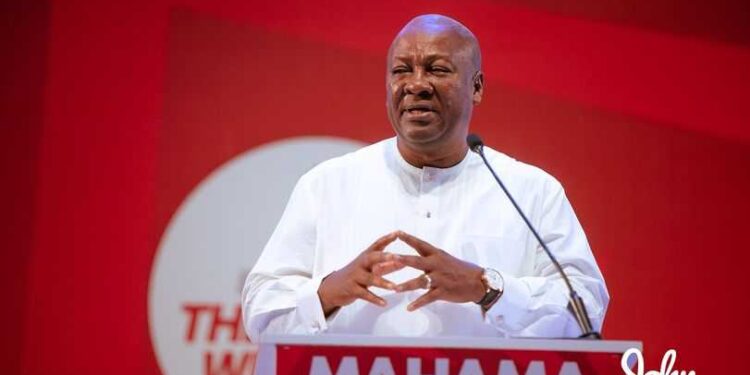University Teachers Association of Ghana (UTAG) has requested the flagbearer of the National Democratic Congress (NDC) Former President John Dramani Mahama to provide further and better particulars on the ‘No academic fees for level 100 students’ policy.
National President of UTAG Professor Mamudu Akudugu, said the idea is to find out how best they can work to make the proposal better.
“We believe that all these policies are very good intentions, our position is that we need to have a fuller picture of what is it that each of the parties is planning for tertiary education space. So when the news of the fee waiver for all level 100 students came up we asked for further and better particulars, at least it is emerging that a number of other things are happening.
“They talk about the increment in subventions and the rest but beyond that, we will want to have a fuller picture of the whole situation, and what we want to do in the tertiary education space.
“There are issues of infrastructure, there are issues of lecture recruitment and quality issues and so we see it as good news but then we have to do further analysis and see how we can make it better. The idea is to see how best we can work with whatever proposition they are making to work better, that is all that there is that we are looking for,” he said on the Ghana Tonight show on TV3 Wednesday, August 14.
Professor Mamudu Akudugu further said that although there are students who need financial assistance, it is difficult to give the number of them who genuinely need that kind of help.
However, he said, even if the number of students needing help is just five, it is worth providing them with the support.
Speaking on Wednesday, August 14, Prof Mamudu Akudugu suggested that the ‘no academic fees for level 100 students’ initiative should be targeted to specific students who genuinely need financial support.
He said a wholesale implementation of this initiative would not be the ideal action to take.
“Of course, there are students who are genuinely having financial constraints and cannot pay but as to how many of them they are we can’t tell as of this time.
“But even if it is just five students it is worth giving them support but that is why we also think that proper targeting of students who really need support to have a university education should be the way to go rather than the wholesale implementation of this policy,” he said.
Meanwhile, Flagbearer of the National Democratic Congress (NDC) John Dramani Mahama has said that the ‘no academic fees for level 100 students’ initiative will cost between 270 million and 290 million Cedis.
He assured Ghanaians that his administration would raise money to fund this project.
Addressing a gathering in Juapong on Tuesday, August 13, Mr Mahama said “we have costed it and we approximate that for all first-year students in public tertiary institutions, it should cost anywhere between 270 to about 290 million Ghana Cedis. Let me tell you something, the president, a few years ago, his travel budget in nine months amounted to 69 million Cedis, they held one cabinet retreat at the presidency, it cost almost 5 million Cedis.
“There is so much waste in the system and even if you look at the office of the president budget alone you will be able to cut to raise enough money to pay these academic facility user fees for all level hundred students. Do you know the budget for the office of the president? it is 2 billion Cedis every year, it is even now that IMF has come and they have cut it down, at a point it used to be 3 point something billion Cedis every year.”
He added “we do not want, especially in the first year when the students are coming in for the first time for them to go through what we call fee stress, that is why we call it a ‘no fee stress policy’ and so we are saying that we can absorb the academic user fee but it will not affect the subventions of governments to the universities and institutions of higher learning.
“The subvention from the government has kept declining, we are going to increase the subventions but apart from that we will make sure that universities get their subventions on time so that they can balance their budget.”


